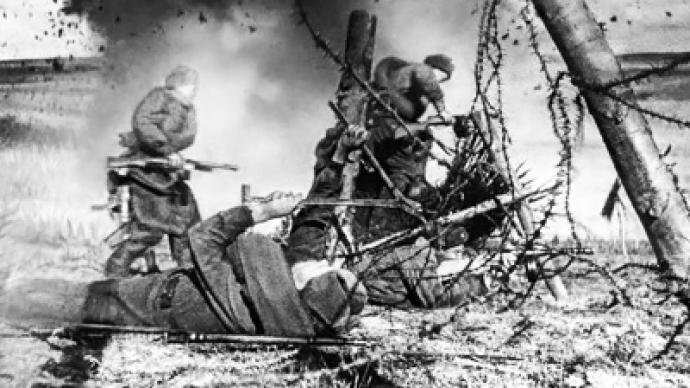It felt like the end of the world - Nazi occupation survivor

World War II claimed the lives of around 27 million Russians, leaving a lasting scar across the entire country. However, some Russian regions suffered most severely: in Russia’s Kaluga Region, the Nazis built one of their ghettos, killing thousands.
The city of Kaluga lies just 150 kilometers southwest of Moscow. Due to its geographical position, it was an important strategic point in the German forces’ attempts to seize control of Moscow in the Great Patriotic War, as WWII is known to Russians. Survivors of Nazi occupation in Kaluga recall the inferno occupation was. "It was hell, it felt like the end of the world,” said occupation survivor Lyudmila Davydova. “Everything was on fire, burning and exploding all around.” “Trees were on fire, a weapons warehouse was burning, and the crashing noise was terrible,” she added. “People were running around yelling ‘They are killing, they are burning us down!’ It is so hard for me to look back at that time."Just 11 years old when the Germans invaded Kaluga, Lyudmila witnessed firsthand Nazi brutality against civilians."I remember they raided our homes for food, they would take every last bit they could find,” she said. “Each family here had someone who either died from starvation or was shot dead."Known as the “Barbarossa Jurisdiction Order”, German soldiers were exempted from prosecution if they committed a crime against the Soviet people and were encouraged in the murders of the Jewish and Slavic civilians.Amongst the archives in Kaluga are thousands of documents detailing the atrocities German occupying forces inflicted on civilians. During the occupation, thousands of children were rounded up like cattle and sent west to the work in the German labor camps."We were never called by names, just by our numbers,” said Nazi labor camp survivor Maya Sazikova. “Each barrack was surrounded with barbed wire with bright yellow sand around it. They would throw toys in the sand. The children would reach out for those nice-looking toys and be electrocuted.”“They were also taking blood from the children to use for the treatment of German officers," she added. Nazi propaganda films praised the "Friendship Movement" showing locals and Germans working hand in hand. Those who were there to witness the reality respond incredulously."They would group together women with children from nearby villages. They were pushed into basements, and then set on fire. A lot of people died that way," said Lyudmila Davydova. In response to the terror, many citizens took up arms and engaged in guerrilla warfare against the invaders. Beyond the limits of the German advance, Soviet citizens mobilized to perform extraordinary efforts to drive out the enemy.“I remember as clear as if it was yesterday, when our troops entered the city, some were just 18/19-year-old boys,” Lyudmila Davydova recalls. “They were wearing white fur coats and white camouflage gowns.”“It was cold – minus 40 degrees – and they walked on the crispy snow, with their cheeks rosy, and they were smiling and looking like angels,” she added. The Nazi brutality would eventually prove self-defeating, creating an attitude of hatred and stubborn resistance among the conquered peoples. A young girl trapped behind German lines writes her father in the Red Army, “They are bloodthirsty monsters, you cannot even call them human. Kill them Papa. Kill the enemy.”












